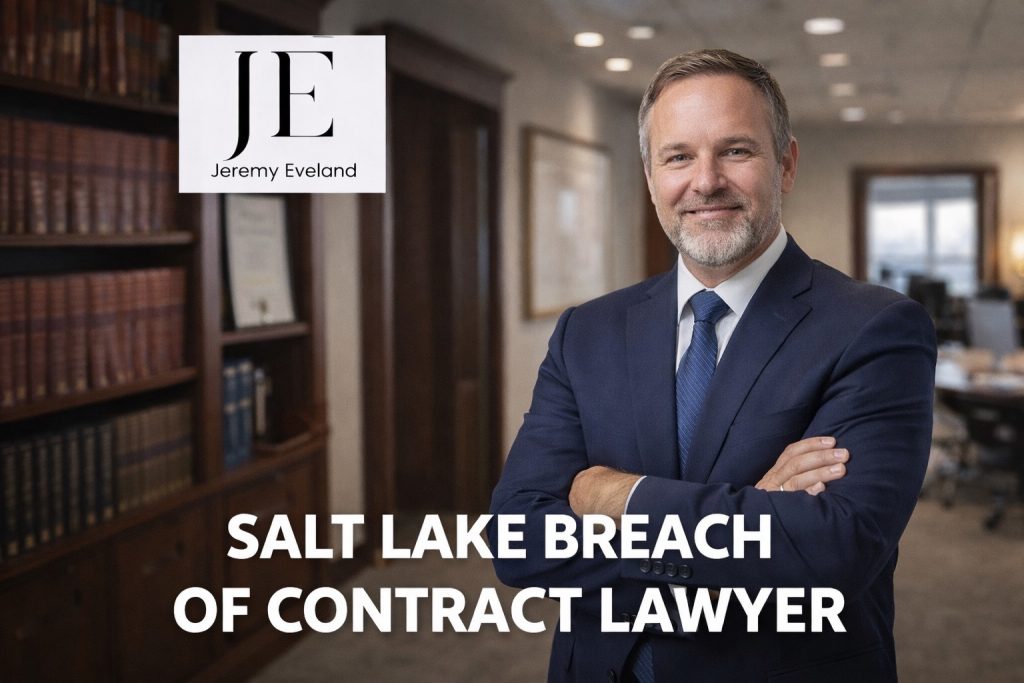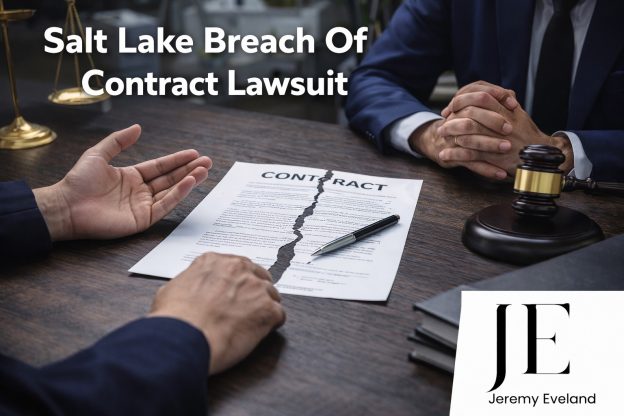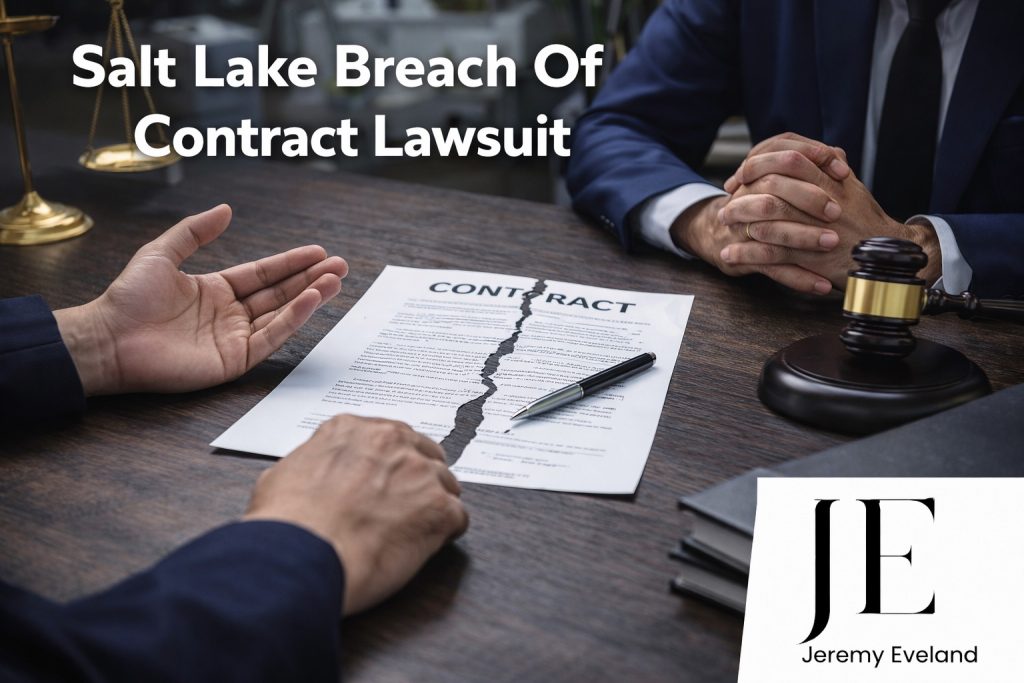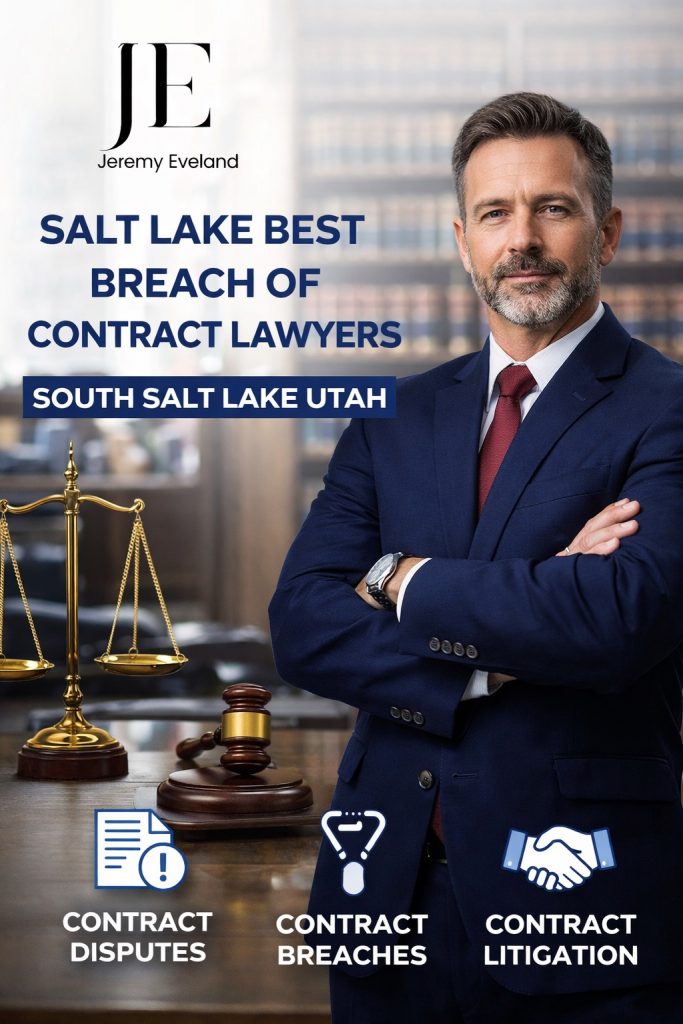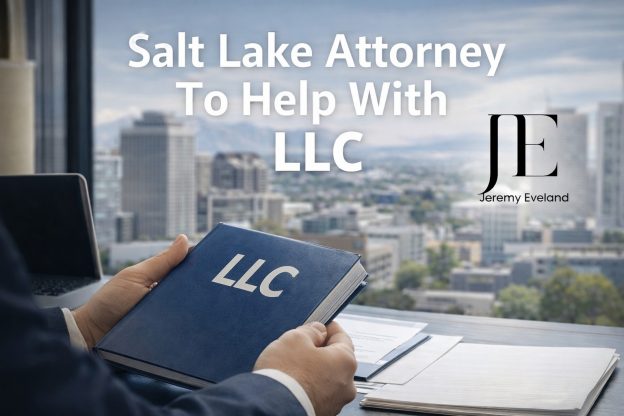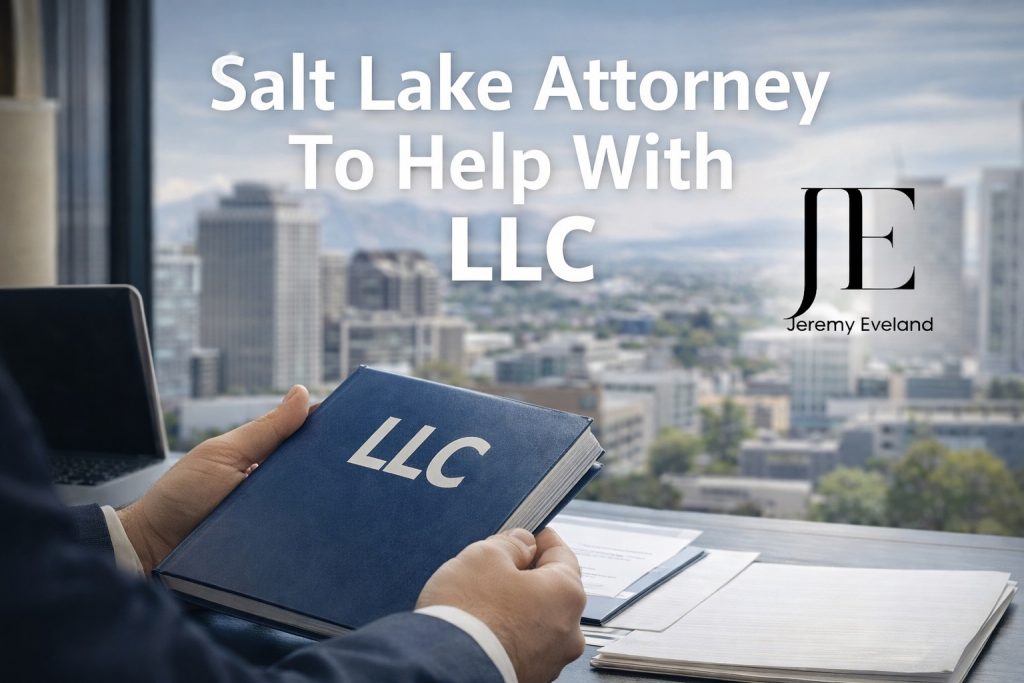Salt Lake Business Attorney Free Consultation: Trusted Legal Guidance for Utah Business Owners
Running a business in Salt Lake City and throughout Utah is both exciting and challenging. Entrepreneurs, startups, and established companies face legal questions and risks at every stage—from formation and contracts to disputes, compliance, and growth. When legal issues arise, having the right attorney on your side can make the difference between long-term success and costly mistakes. That is why searching for a Salt Lake Business Attorney Free Consultation is one of the smartest first steps a business owner can take.
In this comprehensive guide, we will explain what a business attorney does, why a free consultation is so valuable, the most common legal issues Utah businesses face, and—most importantly—why attorney Jeremy Eveland is the trusted choice for business law representation in Salt Lake City.
What Is a Business Attorney?
A business attorney is a legal professional who focuses on the laws and regulations affecting businesses. Unlike general practice lawyers, a business attorney provides targeted advice and representation tailored to commercial operations, transactions, and disputes.
A Salt Lake business attorney typically assists with:
-
Business formation and entity selection
-
Contracts and agreements
-
Mergers and acquisitions
-
Business disputes and litigation
-
Employment law issues
-
Regulatory compliance
-
Asset protection
-
Business sales and succession planning
Because Utah business laws can be complex and constantly evolving, having a knowledgeable attorney ensures your business stays compliant, protected, and positioned for growth.
Why a Free Consultation Matters
Searching for a Salt Lake Business Attorney Free Consultation means you want answers before making a commitment—and rightly so. A free consultation offers significant benefits to business owners.
Benefits of a Free Consultation
-
Risk-free evaluation of your legal situation
-
Clear understanding of your rights and options
-
Insight into potential risks before they become costly
-
Opportunity to evaluate the attorney’s experience and approach
-
No financial obligation to get initial legal guidance
A free consultation empowers business owners with knowledge, helping them make informed decisions without pressure.
Attorney Jeremy Eveland offers free consultations because he believes business owners deserve clarity and confidence before moving forward.
Common Legal Issues Faced by Salt Lake Businesses
Businesses in Salt Lake City operate in a dynamic legal environment. Some of the most common issues that require a business attorney include:
1. Business Formation and Structure
Choosing the right legal structure—LLC, corporation, partnership, or sole proprietorship—has long-term implications for taxes, liability, and operations. Mistakes at this stage can be expensive to fix later.
2. Contracts and Agreements
Contracts are the backbone of any business. Poorly drafted agreements can lead to disputes, lost revenue, or litigation. A business attorney ensures contracts are enforceable and protect your interests.
3. Partnership and Shareholder Disputes
Disagreements between partners or shareholders can disrupt operations and threaten the business. Legal guidance is essential for resolving conflicts efficiently.
4. Employment Law Issues
From employee contracts and non-compete agreements to wrongful termination claims, employment law issues can expose businesses to serious liability.
5. Business Litigation
Lawsuits involving breach of contract, fraud, or business torts can drain time and resources. A skilled business attorney helps resolve disputes through negotiation, mediation, or litigation.
6. Regulatory Compliance
Utah businesses must comply with local, state, and federal regulations. Non-compliance can result in fines, penalties, or shutdowns.
7. Buying or Selling a Business
Business transactions involve due diligence, contracts, and negotiation. Legal oversight protects your investment and minimizes risk.
Why You Need a Salt Lake Business Attorney
Many business owners wait until a problem arises before contacting an attorney. Unfortunately, by then, damage may already be done. Proactive legal guidance helps prevent problems before they occur.
A business attorney helps you:
-
Avoid costly legal mistakes
-
Reduce liability exposure
-
Strengthen contracts and agreements
-
Resolve disputes efficiently
-
Plan for growth and transitions
-
Protect personal and business assets
Working with a trusted Salt Lake business attorney is an investment in the stability and future of your company.
Why Choose Attorney Jeremy Eveland
When searching for a Salt Lake Business Attorney Free Consultation, experience, reputation, and personalized service matter. Attorney Jeremy Eveland is widely respected for his dedication to business owners and his comprehensive understanding of Utah business law.
1. Extensive Business Law Experience
Jeremy Eveland has years of experience advising and representing businesses of all sizes—from startups to established companies. His knowledge spans formation, contracts, disputes, and litigation.
2. Strategic, Business-Focused Legal Advice
Jeremy understands that legal decisions are business decisions. He provides practical, strategic guidance designed to protect your interests while supporting your long-term goals.
3. Personalized Attention
Unlike large firms where clients may feel overlooked, Jeremy Eveland offers personalized service. He takes the time to understand your business, challenges, and objectives.
4. Strong Advocacy and Negotiation Skills
Whether negotiating contracts or representing clients in disputes, Jeremy is a skilled advocate who works tirelessly to achieve favorable outcomes.
5. Clear Communication and Transparency
Legal matters can be overwhelming. Jeremy Eveland explains complex legal concepts in clear, straightforward terms so you can make confident decisions.
6. Free Consultation With No Obligation
Jeremy Eveland offers a free consultation, allowing you to discuss your situation, ask questions, and explore your options without financial pressure.
What to Expect During a Free Consultation With Jeremy Eveland
During your free consultation, you can expect:
-
A detailed discussion of your business and legal concerns
-
Identification of potential risks and opportunities
-
Clear explanation of legal options and strategies
-
Honest assessment of your situation
-
Guidance on next steps
This consultation is designed to provide value and clarity—even if you decide not to move forward immediately.
Proactive Legal Planning for Utah Businesses
One of the biggest advantages of working with a business attorney like Jeremy Eveland is proactive legal planning. Instead of reacting to problems, you can prevent them.
Proactive planning includes:
-
Reviewing and updating contracts
-
Implementing compliance strategies
-
Structuring transactions properly
-
Preparing for growth, mergers, or sales
-
Protecting intellectual property
Businesses that plan ahead are more resilient, profitable, and successful.
Industries Served by Jeremy Eveland
Attorney Jeremy Eveland works with a wide range of industries, including:
-
Small and mid-sized businesses
-
Startups and entrepreneurs
-
Professional service firms
-
Real estate and construction businesses
-
Technology and online businesses
-
Retail and service providers
His broad experience allows him to tailor legal strategies to each industry’s unique challenges.
When Should You Call a Salt Lake Business Attorney?
You should contact a business attorney as soon as you:
-
Start a new business
-
Enter into a significant contract
-
Add partners or investors
-
Face a dispute or lawsuit
-
Plan to buy or sell a business
-
Have questions about compliance or liability
Early legal guidance saves time, money, and stress.
Take the First Step With a Free Consultation Today
If you are searching for a Salt Lake Business Attorney Free Consultation, now is the time to act. Legal issues rarely resolve themselves, and waiting can make matters worse.
Attorney Jeremy Eveland is committed to helping Utah business owners protect what they’ve built and move forward with confidence.
Contact Attorney Jeremy Eveland
📞 Phone: (801) 613-1472
🌐 Website: https://jeremyeveland.com
Whether you are starting a business, facing a dispute, or planning for the future, Jeremy Eveland offers the experience, dedication, and insight you need.
Schedule your free consultation today and gain the peace of mind that comes from having a trusted Salt Lake business attorney on your side.





